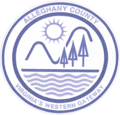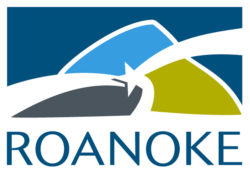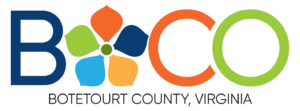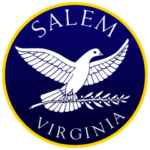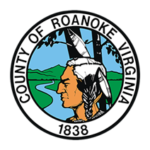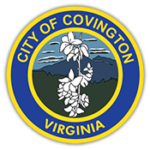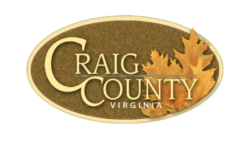As our community moves through the strategic planning process to determine our next steps in responding to homelessness in our community, I wanted to take a step back and recognize the successes we have achieved over the last three years and the many challenges we have experienced. In 2019, our community set the high bar of achieving the status as a HUD-designated high performing community. This lofty goal required us to meet extraordinarily high-performance standards relating to the average length of time individuals remain homeless in our system and the rates at which individuals who exit our system to permanent housing destinations have subsequent returns to homelessness. The fact that no community in the nation has met these high standards is a testament to the difficulty in achieving them. While we did not achieve this overarching goal, our community has successes to celebrate and challenges to confront. We made significant progress in many of the plan’s focus areas, even with the COVID-19 pandemic overshadowing all of our work over the last two years.
The last 24 months have been turbulent, to say the least. We have had to navigate a global pandemic and all of the challenges associated with it, including developing and implementing strategies to protect our community’s most vulnerable; staffing shortages and high rates of turnover at our homeless service agencies; soaring rates of individuals experiencing mental health crises in our community; inflation; rising housing costs; low vacancy rates in our community’s limited stock of affordable housing. And the list goes on. These challenges have stressed our system and created anxiety for all of us.
Despite these unprecedented challenges, our community has remained resilient. We persisted. Staff continued to show up to work every day despite these seemingly insurmountable challenges. Shelter staff continued to provide case management to guests in crisis. Meals continued to be served by steadfast volunteers. Outreach workers continued to go out into the community to meet the needs of our most vulnerable. Housing staff continued to help those with countless barriers obtain housing. Partners cared for those sick with COVID-19. Our work did not stop. And as a result, 289 households moved into permanent housing from our emergency shelters and from our streets in 2020 and 2021.
Below are the highlights of our community’s achievements and challenges from our 2019 – 2021 strategic plan by goal area.
COVID-19 Response
- We partnered with local departments of emergency management, the public health department, and hospital systems to implement creative solutions, including converting one of our community’s emergency shelters into a COVID-19 isolation facility. Local hotels were also used to provide isolation space for individuals experiencing homelessness to recover from COVID-19 infection.
- A non-congregate shelter program for our community’s most vulnerable, unsheltered individuals was implemented. The program served 269 high-risk individuals from April 2020 to June 2021. Eighty-two of these individuals exited the program to permanent housing.
- We utilized and adapted existing systems, including Central Intake and our Homeless Management Information System (HMIS), to streamline referrals and prioritize placements into the non-congregate shelter and COVID isolation programs.
- We implemented a multi-agency case conferencing team that met weekly for 14 months to develop action plans to move individuals out of the non-congregate shelter program and into permanent housing.
Performance Evaluation
- Increase in lengths of homelessness – the average length of time individuals spent homeless in our community increased from 56 days in 2019 to 94 days in 2021. Due to pandemic-related shutdowns and low turnover in rental units, it was difficult for individuals experiencing homelessness to locate housing. Access to affordable rental housing continues to be a challenge for the community.
- Returns to homelessness increased – return rates to homelessness increased from 23.1% in 2019 to 27% in 2021. Inflation, rising housing costs, and the overall financial impacts of the pandemic were likely contributors to these numbers that have created unprecedented challenges for those with the least amount of financial resources in our community.
- Overall homeless was reduced – our reductions in overall homelessness exceeded our strategic plan goal to reduce homelessness by 9% over three years. Our Point-in-Time Count has decreased each year from 2019 (319) to 2021 (250), representing a 21% decrease. Since 2012 (561), homelessness in the community has been reduced by 55%.
- Permanent housing placements from street outreach increased – permanent housing placements and retention from our community’s street outreach programs have increased each year since 2019, outperforming our community goal by 7% over that period. The percentage of unsheltered individuals exiting street outreach programs to permanent housing destinations increased from 13.1% in 2019 to 28% in 2021.
- Expansion of our Homeless Management Information System (HMIS) – The Virginia Harm Reduction Coalition and The Least of These Ministries joined our HMIS as participating agencies in 2021. These new participating partners have allowed us to track the services individuals access in the community more completely. The data also allows us to more accurately measure the performance of our overall response system to better identify service gaps and to better coordinate our outreach efforts. Our community also has 100% of our emergency shelter, rapid rehousing, and permanent supportive housing providers participating in our HMIS, a significant achievement for our community.
Enhance Coordinated Entry
- Implemented By-Name List (BNL) Case Conferencing for Unsheltered Individuals – our community developed a by-name list case conferencing process for everyone experiencing unsheltered homelessness in our community. A multi-agency committee meets every other week to set housing plans with action-oriented next steps for each individual on the list. Individuals are case-connected to employment resources, rapid re-housing services, permanent supportive housing openings, and prioritized housing vouchers.
- Rental Assistance Portal – a portal was implemented on the Continuum of Care’s website to facilitate streamlined connection to rental assistance resources for individuals at-risk of homelessness in the community. The portal facilitates connection to the State’s Rent Relief Program and local homelessness prevention resources through Central Intake.
Scale Permanent Housing Interventions
- Homeless Preference Implemented for Voucher Programs – in 2020, our community worked with the Roanoke Redevelopment and Housing Authority (RRHA) to implement a “homeless preference” for the RRHA’s Housing Choice Voucher (HCV) and Mainstream Voucher programs. CoC partners can now make referrals at any time, regardless of the RRHA’s public application status, to the voucher programs through our community’s Coordinated Entry process. CoC partners developed prioritization criteria for referrals that help ensure these resources are being utilized by those most vulnerable and most in need in our system.
Since this homeless preference was implemented in December 2020, 29 literally homeless households have obtained permanent housing with vouchers obtained through our homeless preference. In July 2021, we utilized this existing structure to connect individuals experiencing homelessness with the 26 new Emergency Housing Vouchers (EHVs) that were made available to our community through the American Rescue Plan Act (ARPA). As of April 1, 2022, 21 of our 26 EHVs have been “leased up” into permanent housing by individuals exiting literal homelessness.
- Expanded Rapid Re-Housing Services – a new position funded by Virginia Housing Trust Fund has created a case manager supervisor position at the Council of Community Services’ Community Housing Resource Center. This new position will allow our community to provide more effective case management services to ensure individuals in our homelessness prevention and rapid re-housing programs remain stably housed.
Strengthen Housing-Focused Practices
- Housing Navigation Services Increased – the Council of Community Services has hired a new rapid re-housing housing navigator to provide more intensive housing search assistance for unsheltered individuals and other special populations who do not qualify for other community supports. This position will assist unsheltered individuals with vouchers who do not qualify for mental health skill-building supports in applying for housing units to utilize their voucher. The position will provide “hands-on” housing search assistance, including assisting clients with completing housing applications, paying application fees, providing transportation to view units, etc.
- Increasing Street Outreach Capacity – the City of Roanoke is hiring two new, full-time HAT case managers using CARES Act funds through the City’s Emergency Solutions Grant (ESG-CV). These two new case managers will increase the number of case managers with the City’s Homeless Assistance Team (HAT) from three to five and will greatly expand the capacity of our community in providing housing-focused case management services to unsheltered individuals.
- Mental Health Skill-Building Partnerships – CoC partners, particularly our street outreach teams, are partnering with mental health skill-building agencies to provide additional support for individuals with severe mental illness and/or substance use disorder. These agencies have been a critical resource for many of our hardest to serve clients who need additional support connecting to services and searching for housing.
Staff from these agencies participate in our bi-weekly case conferencing meetings and come to clients in the field to complete intakes on-site on very short notice. Unfortunately, only those with a history of mental health hospitalizations and who receive Medicaid benefits qualify for this service. As previously stated, the City of Roanoke’s Homeless Assistance Team and the Council of Community Services are hiring additional staff to fill this service gap.
- Partnership with Virginia Career Works – we have developed a streamlined referral process through a single point of contact with Virginia Career Works to better connect individuals in our system to employment services. Virginia Career Works staff also now participate in our community’s case conferencing meetings to better facilitate connecting clients to employment opportunities.
- Medical and Mental Health Street Outreach through the Fralin Clinic – the Roanoke Rescue Mission has begun conducting street outreach through its Fralin Free Clinic to bring medical care and mental health services to clients in the field. This outreach work has also served to build relationships between Mission staff and unsheltered individuals, which has resulted in additional individuals choosing to access shelter services. Fralin Clinic staff also participate in our community’s unsheltered case conferencing meeting with community partners to coordinate housing solutions for this population.
Improve Response to Domestic Violence
- New Housing Resources for Individuals Fleeing Domestic Violence – Total Action for Progress’ (TAP) Domestic Violence Services (DVS) implemented a new transitional housing program for individuals fleeing domestic violence. With funding secured through the U.S. Department of Justice’s Office on Violence Against Women, the project has provided transitional housing services to 38 high-risk families since the program began in 2019. Thirty-six (36) of these families exited the program to permanent and non-permanent housing destinations, with only two returning to their abusers.
As we move through the development of our next strategic plan, we will be building on these achievements and continuing our work to overcome the challenges we face.
Thank you to all of our dedicated community partners who have worked diligently over the past three years amid unprecedented challenges to ensure everyone in our community has a place to call home.
Matt Crookshank, Chair
Blue Ridge Continuum of Care

